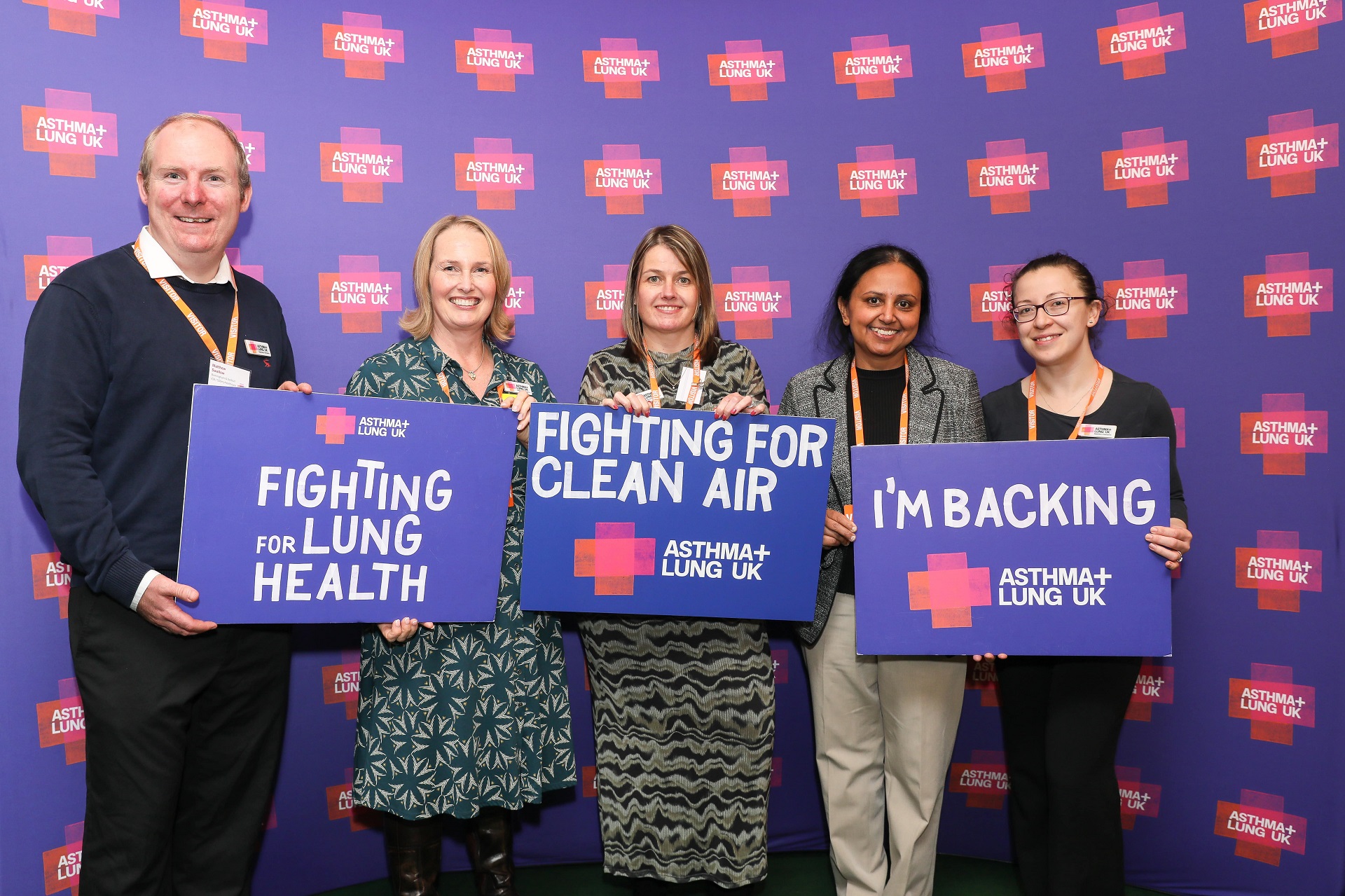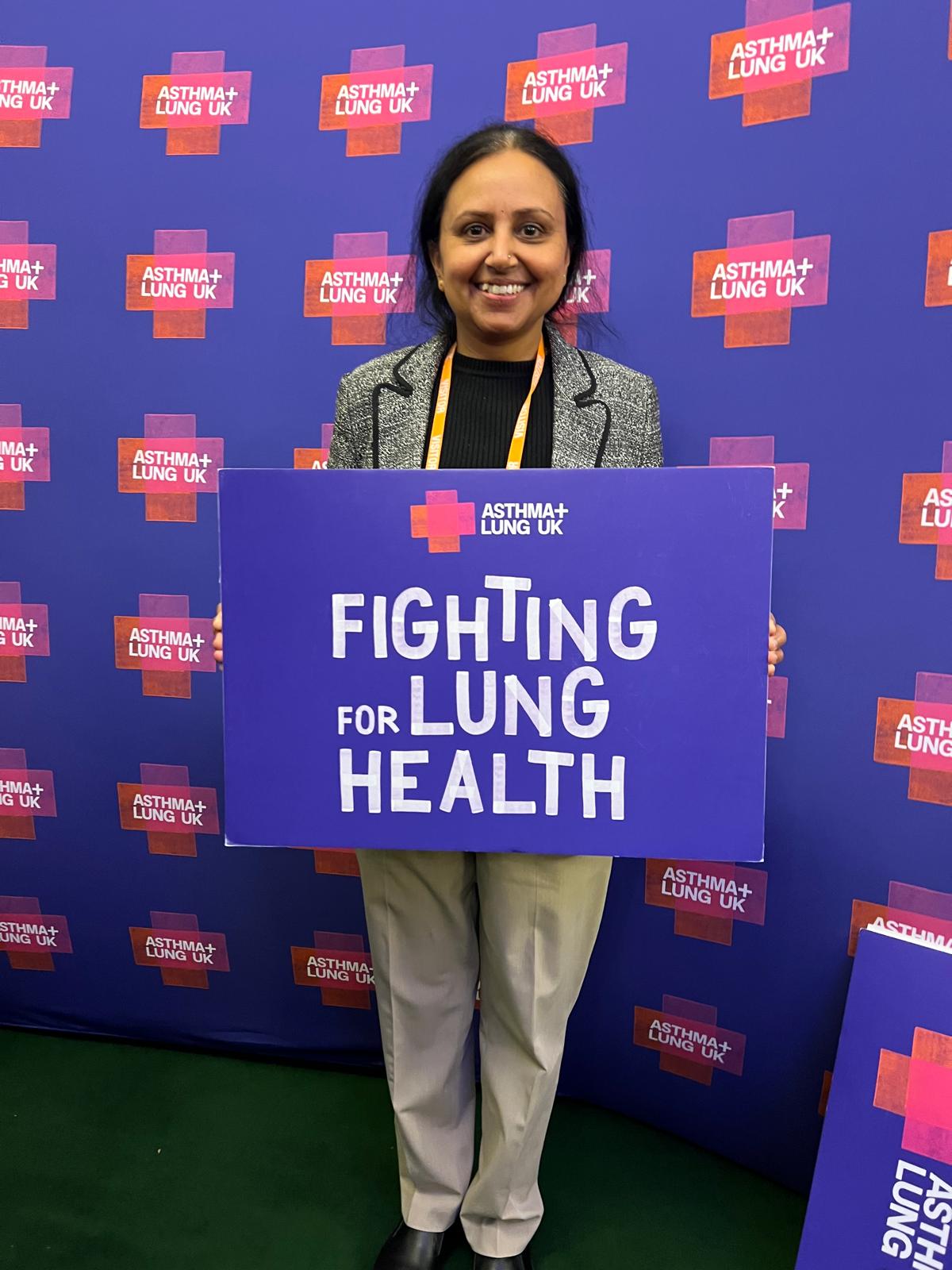
Sharada Gudur, a Respiratory Medicine Consultant at Lancashire Teaching Hospitals and a respiratory champion for Lancashire and South Cumbria Integrated Care Board, recently joined representatives from Asthma and Lung UK at the Houses of Parliament to urge the Government to prioritise lung health in its NHS 10-year plan.
Respiratory diseases are the third leading cause of death in the UK, yet they remain under-prioritised by policymakers, with dire consequences for individuals and the healthcare system.
“A Mission for Lung Health,” a comprehensive report by Asthma and Lung UK, outlines strategic recommendations for addressing the UK’s respiratory health crisis. The report’s goals include reducing health inequalities, enhancing NHS productivity, and easing winter pressures on hospitals. By tackling air pollution, supporting smoking cessation, and improving housing conditions, the initiative aims to shift the NHS’s focus from treatment to prevention.
Key statistics reveal the severity of the problem - respiratory diseases are the third leading cause of death in England and a major driver of winter hospital admissions, while the UK’s lung disease death rate is the highest in Europe.
Health inequalities are stark, with poorer communities experiencing significantly higher respiratory disease mortality rates.
Dr. Gudur shared her perspective after returning from Parliament: “For a number of years, lung health has been neglected, and the pandemic exacerbated the issue. The main aim was to try and get the government to listen.
“The cost-of-living crisis hasn’t helped, but my issue is if we don’t diagnose properly, patients are put on medications in the interim as there hasn’t been the capacity to fully investigate. Those medications can cause other problems, then the condition gets worse, and the patient is in a worse state.
“So, we are saying ‘get the right investigation at the right time’—early diagnosis helps with adequate management, and if we get the diagnosis right, we can appropriately treat patients and hospitals should then be there to support when we need.”
As a respiratory champion, Dr. Gudur will play a pivotal role in a year-long pilot project by Asthma and Lung UK aimed at improving asthma and COPD care across Lancashire and South Cumbria Integrated Care Boards (ICB) along with five other respiratory champions from other ICBs in England. She is collaborating with local healthcare teams to enhance diagnostics and community care. However, systemic challenges such as funding shortages, limited diagnostic services, an d poor housing conditions demand national-level interventions.
d poor housing conditions demand national-level interventions.
Key areas of focus include combatting air pollution, which contributes to 43,000 premature deaths annually in the UK. There is hope that World Health Organization air quality standards will be adopted, along with expedited plans to reduce PM2.5 levels – fine particles in the air which can cause short-term health effects - by 2030. Smoking, the leading cause of preventable respiratory illness and death, requires urgent action. Proposals such as a levy on tobacco companies, which could raise £700 million annually, aim to bolster smoking cessation services and support a smoke-free generation.
Cold and mouldy homes worsen respiratory conditions, highlighting the need for a cross-departmental strategy to improve housing quality. This approach would prevent illnesses, reduce NHS costs, and generate economic benefits through job creation and improved public health.
Dr. Gudur emphasised the importance of community-based care: “We want to move some clinics as much as possible back to the community—there are things which could be done, so it’s that joined-up working. I’m working with our ICBs to see if we can come up with a pathway for certain conditions where we depend on primary care, and we have an excellent rapport with Lancashire Care. If a patient has COPD, the community team sees the patient, gives them the treatment, and if they are not improving, every Friday we discuss with them in a multidisciplinary meeting, they bring cases, and see what else we can do. That really works well.”
Asthma and Lung UK’s call for a £40 million spirometry recovery fund is a vital step toward addressing diagnostic backlogs and ensuring timely care. This investment would enable healthcare staff to deliver essential diagnostic tests in primary care, reducing hospital admissions and improving patient outcomes.
Dr. Gudur’s advocacy focuses on three critical areas: “We have a lot against us, but we need to be resilient and strong. My message is three ‘tions’—smoking cessation, promote vaccination, and promote and support rehabilitation. I’m going to make a pledge around that.”
Health inequalities pose a significant challenge to achieving better respiratory outcomes. People in deprived areas are nearly five times more likely to die from COPD than those in wealthier regions. Dr. Gudur calls for resources to be directed toward areas with the greatest need, ensuring that all ICBs meet national respiratory care standards.
Asthma and Lung UK’s recommendations align with government objectives to enhance NHS efficiency and promote economic growth. Investments in prevention, diagnostics, and community care will deliver long-term benefits for individuals, the NHS, and society.
“Challenges remain,” Dr. Gudur concluded, “but through resilience and collaboration, we can create meaningful change.”







